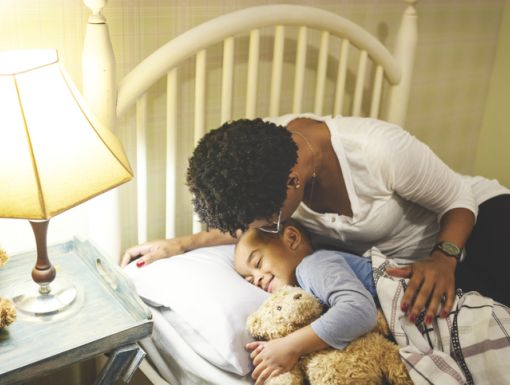
Can My Child Take Melatonin?
You may have heard that melatonin supplements can help children sleep, so you may be wondering: Is melatonin safe for children?
What is melatonin?
Melatonin is a natural hormone in the human body that helps control circadian rhythms. Your circadian rhythm is the 24-hour internal clock that helps regulate your sleeping and feeding patterns. Melatonin is produced as your brain’s response to darkness and helps with sleep. While the body naturally creates melatonin, many people rely on melatonin dietary supplements to combat sleep disorders, jet lag, anxiety and other issues.
Is melatonin safe for children?
Melatonin’s best-established use is for patients with acute or chronic circadian rhythm disturbances (ex: jet lag, delayed sleep-wake disorder), but there is evidence that melatonin effectively improves sleep in children as well. Parents may consider melatonin to help a child sleep if their child struggles with falling asleep or staying asleep. Disordered sleep can affect a child’s ability to perform in school and their mental and physical health. Melatonin is non-sedating, non-habit forming and can be used in children, adults and the elderly. However, it should not be used to “promote restful sleep” in otherwise healthy children without sleep problems.
Overall, there is not enough information on the possible side effects of melatonin supplements, especially those at a higher dose than what the body produces. Short-term use appears to be safe for children, but the long-term effects of melatonin supplements are still being studied. Here are a few things to consider when considering giving your child a melatonin supplement:
- The Food and Drug Administration does not strictly regulate dietary supplements. Therefore, melatonin supplements vary in accuracy of strength and concentration. Some supplements may not contain what is listed on the product label. It is important to know what you or your child is consuming.
- Dietary supplements, including melatonin, can interact with other medications. Before giving your child a melatonin supplement, contact your pediatrician.
- Allergic reactions may occur with melatonin supplements.
- Melatonin is a hormone. It is possible that melatonin supplements could affect hormonal development, including puberty and menstrual cycles.
- According to the National Center for Complementary and Integrative Health, possible mild side effects reported in children include drowsiness, increased bedwetting or evening urination, headaches, dizziness, agitation and nausea.
How should melatonin be taken?
The timing of when to take melatonin depends on the sleep problem at hand. It is most effective when given several hours before bedtime for those with a circadian phase delay. For children with sleep onset delay, it should be taken closer to bedtime, approximately 30 minutes beforehand. Dosing ranges from 1 mg to 10 mg nightly and should be taken at the lowest effective dose to prevent morning grogginess or daytime drowsiness. It is recommended to start with the lowest dose, and then gradually increase to find the dose that works.
The typical doses are 1 mg in infants, 3 mg in older children, and 5 mg in adolescents. Do not exceed 10 mg per dose. Supplementing with melatonin is recommended before trying other drug containing sleep aids due to its low side effect profile.
There are many options available when choosing a melatonin supplement. The available forms are tablets, quick dissolvable tablets, capsules, gummies and liquids. Quick dissolvable tablets and liquids are absorbed faster than traditional tablets and capsules. There are also extended-release formulations available that may help if you have trouble staying asleep. The extended-release formula is slowly released, which allows your body to maintain a higher level of melatonin during the night.
Before beginning a melatonin supplement, talk to your child’s pediatrician or pharmacist to ensure it is safe for you to do so.
What are some healthy sleep habits?
It is also important to ensure that child practices healthy sleep habits, including simple behaviors before bedtime.
Turn off all electronic devices at least 30 minutes before bedtime and limit light exposure in the evening. Powering down will stimulate the natural melatonin production in your body. The blue light from electronic devices decreases your body's natural ability to produce melatonin and promotes wakefulness. You can also create a calming bedtime ritual to signal sleep to your child’s body, such as taking a bath, reading a book and keeping the bedroom quiet and at a cool temperature.
If you have questions about sleep issues with your child, contact your child’s pediatrician. They will be able to make recommendations for your child’s health. Melatonin should not be given to children without a healthcare provider’s supervision.
Learn more about Pediatrics at Ochsner Health.



